October 20-21, 2023
Samarkand, Uzbekistan
Hybrid Event: Virtual & In-Person
International Annual Forum on Computer Science and Information Technology
Conference flyer



O‘zbekcha
The Consortium for the Advancement of Science and Technology (AST Consortium) and Samarkand State University cordially invite you to participate in the International Annual Forum on Computer Science and Information Technology (ICCSIT 2023) to be held on October 20-21, 2023, in Samarkand, Uzbekistan. ICCSIT 2023 aims to provide a platform for researchers, practitioners, and educators from around the world to exchange their latest research results and ideas, and to discuss current challenges, issues, and trends in the field of computer science and information technology. The forum will include keynote speeches, technical sessions, workshops, and panel discussions, covering a wide range of topics in computer science and information technology. Participating in ICCSIT 2023 will provide you with an opportunity to present your latest research results and ideas, to learn about the latest trends and developments in the field, and to network with other researchers, practitioners, and educators from around the world. We look forward to welcoming you to ICCSIT 2023 in Samarkand, Uzbekistan, and to sharing an enriching and rewarding experience. This year forum will be attended by 300 in-person participants from 20+ countries, in addition to more than 1,000 virtual participants from 40+ countries, representing all major areas in computer science and information technology.
About ICCSIT 2023
The forum is a platform for researchers, practitioners, and experts to exchange ideas, share their research findings, and discuss the latest trends and developments in the field of computer science and information technology. The forum aims to bring together researchers, industry professionals, and academics from different parts of the world to discuss current issues and future directions in the field. The forum will cover a wide range of topics related to computer science and information technology, including artificial intelligence, big data, cloud and grid computing, computer engineering, human-computer interaction, software engineering, and more.
The forum provides an excellent opportunity for participants to exchange ideas, establish collaborations, and explore new research directions. Participants can present their research findings, learn from experts in the field, and network with peers from different countries. By participating in the forum, attendees can gain valuable insights into the latest trends and developments in the field of computer science and information technology. Additionally, they can share their own experiences, learn from others, and broaden their knowledge and understanding of the field. Overall, ICCSIT 2023 is an excellent forum for anyone interested in computer science and information technology to gain knowledge, exchange ideas, and establish new collaborations.
The forum provides an excellent opportunity for participants to exchange ideas, establish collaborations, and explore new research directions. Participants can present their research findings, learn from experts in the field, and network with peers from different countries. By participating in the forum, attendees can gain valuable insights into the latest trends and developments in the field of computer science and information technology. Additionally, they can share their own experiences, learn from others, and broaden their knowledge and understanding of the field. Overall, ICCSIT 2023 is an excellent forum for anyone interested in computer science and information technology to gain knowledge, exchange ideas, and establish new collaborations.
Scope & Themes
The conference will cover a broad range of topics related to agriculture and technology including, but not limited to:
1. Artificial Intelligence, Big Data and Data Mining.
2. Cloud & Grid Computing.
3. Computer Engineering.
4. Electrical & Electronic Engineering.
5. Embedded System, Technology, and Solutions.
6. Human Computer Interaction.
7. ICT Applications in Education and Training.
8. Image Processing and Computer Vision.
9. Information Security and Cryptography.
10. Information Systems Research and Applications.
11. Knowledge-Based Decision-Making Systems.
12. Mathematical and Computer Modeling.
13. Mobile Computing and Applications.
14. Natural Language Processing.
15. Network and Data Communication.
16. Open-Source System.
17. Pattern Recognition.
18. Smart Factory and Smart Product.
19. Social Networking and Application.
20. Soft Computing.
21. Software Engineering.
22. The Internet of Things: Research and Recent Applications.
23. Virtual and Augmented Reality Applications.
24. Wireless Communication.
2. Cloud & Grid Computing.
3. Computer Engineering.
4. Electrical & Electronic Engineering.
5. Embedded System, Technology, and Solutions.
6. Human Computer Interaction.
7. ICT Applications in Education and Training.
8. Image Processing and Computer Vision.
9. Information Security and Cryptography.
10. Information Systems Research and Applications.
11. Knowledge-Based Decision-Making Systems.
12. Mathematical and Computer Modeling.
13. Mobile Computing and Applications.
14. Natural Language Processing.
15. Network and Data Communication.
16. Open-Source System.
17. Pattern Recognition.
18. Smart Factory and Smart Product.
19. Social Networking and Application.
20. Soft Computing.
21. Software Engineering.
22. The Internet of Things: Research and Recent Applications.
23. Virtual and Augmented Reality Applications.
24. Wireless Communication.
Important Dates
- Online submission opens: February 1, 2023
- Early registration: May 20, 2023
- Standard registration: August 20, 2023
- Registration: October 5, 2023
- Notification of abstract acceptance: on the rolling basis
- Participation (main program): October 20-21, 2023
- Cultural visits: October 22, 2023
- Full paper submission deadline: November 10, 2023
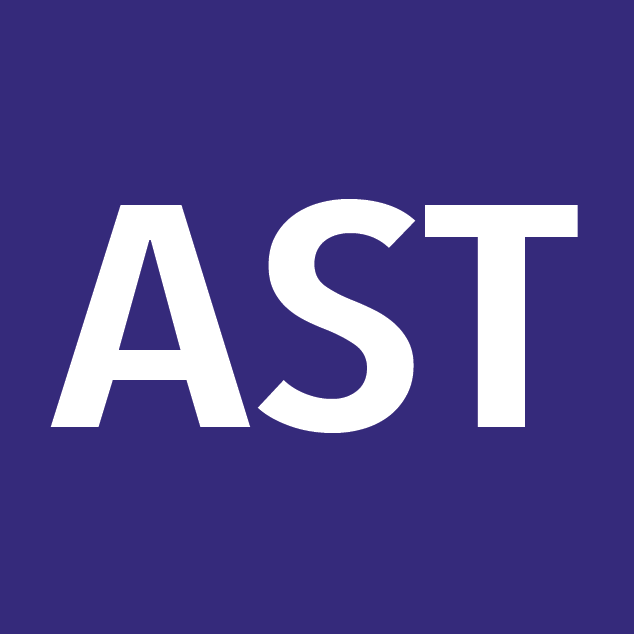
A network of research institutions and educational organizations, promoting latest advances in science and technology.
AST Consortium
Tashkent, Uzbekistan

A classical higher educational institution, famous not only in Uzbekistan but also in many countries of the world.
Samarkand State University
Samarkand, Uzbekistan
Organizers, Partners, & Sponsors
The Consortium partners with a number of organizations to support the international conference and foster scientific communication and exchange between universities, research institutions, and industrial partners.
Supporting organizations
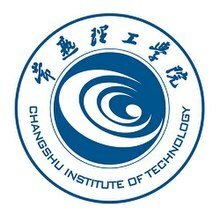
Changshu Institute of Technology
Changshu, China
An outstanding university in polytechnics and sciences of technological application.
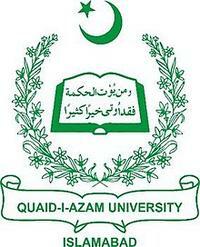
Quaid-i-Azam University
Islamabad, Pakistan
One of the top ranked universities of Pakistan in a number of fields.
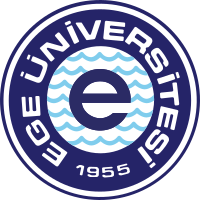
Ege University
Izmir, Turkiye
One on the leading public research university, the 4th oldest in Turkiye.
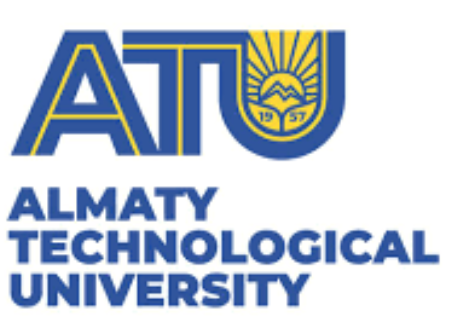
Almaty Technological University
Almaty, Kazakhstan
One of the leading higher educational institutions in Kazakhstan and Central Asia.
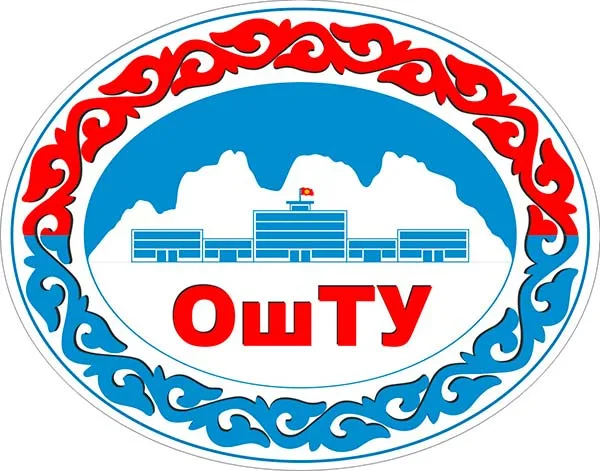
Osh Technological University
Osh, Kyrgyz Republic
Leading technical university in the country, with strong research infrastructure.
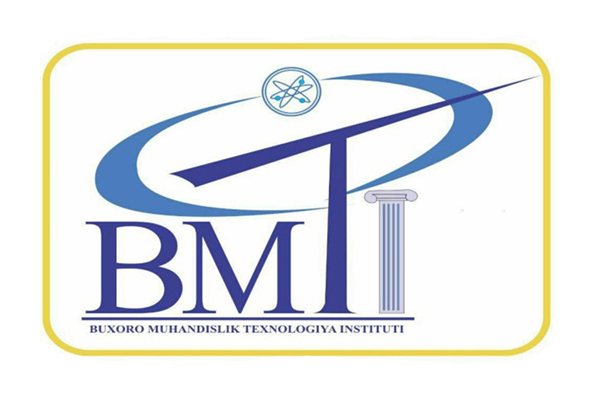
Bukhara Institute of Engineering and Technology
Bukhara, Uzbekistan
The oldest university in Bukhara region in the field of technology and engineering.
Qammer Hussain Abbasi, PhD, Professor
Chairperson, Program Committee
James Watt School of Engineering, University of Glasgow, Glasgow, United Kingdom
Chairperson, Program Committee
James Watt School of Engineering, University of Glasgow, Glasgow, United Kingdom
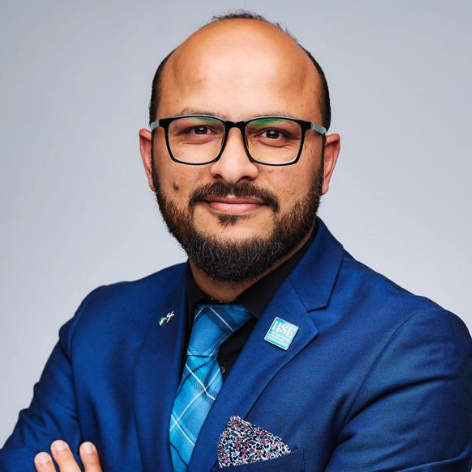
Conference Chairs
Akmal R. Akhatov, Doctor of Technical Sciences, Professor, Vice-Rector for International Cooperation
Chairperson, Organizing Committee
Samarkand State University, Samarkand, Uzbekistan
Chairperson, Organizing Committee
Samarkand State University, Samarkand, Uzbekistan

- Dr. Fayzullo M. Nazarov, Associate Professor, Head of the Department of Artificial Intelligence and Information Systems, Samarkand State University, Samarkand, Uzbekistan.
- Dr. Ozod R. Yusupov, Associate Professor, Head of the Department of Software Engineering, Samarkand State University, Samarkand, Uzbekistan
- Dr. Jamoliddin S. Jabbarov, Associate Professor, Department of Software Engineering, Samarkand State University, Samarkand, Uzbekistan
- Dr. Kholida A. Primova, Associate Professor, Deputy Director for Science and Innovation, Samarkand branch of the Tashkent University of Information Technologies named after Muhammad al-Khwarizmi, Samarkand, Uzbekistan
- Mekhriddin K. Nurmamatov, Associate Professor, Uzbek-Finnish Pedagogical Institute, Samarkand State University, Samarkand, Uzbekistan.
- Dr. Christo Ananth, Department of International Education Programs, Samarkand State University, Samarkand, Uzbekistan.
- Dr. Salikh Tashpulatov, Professor, Chairperson of the Consortium for the Advancement of Science and Technology, Tashkent, Uzbekistan.
Organizing Committee Members
- Dr. Bilal Abu-Salih, King Abdullah II School of Information Technology, The University of Jordan, Amman, Jordan.
- Dr. Olayemi Mikail Olaniyi, Department of Computer Engineering, Federal University of Technology, Minna, Nigeria.
- Dr. Hanh Nguyen, Thi Hanh Phuong Dong University, Viet Nam.
- Dr. Zurina Binti Mohd Hanapi, Department of Communication Technology and Networking, Universiti Putra Malaysia, Serdang, Malaysia.
- Dr. Yalçın Ata, Department of Electrical and Electronics Engineering, OSTIM Technical University, Ankara, Türkiye.
- Dr. David Mhlanga, The University of Johannesburg, Johannesburg, South Africa.
- Dr. Fadi Alyoussef, Dicle University, Diyarbakır, Turkey.
- Dr. Zarul Fitri Zaaba, School of Computer Sciences, Universiti Sains Malaysia, Pulau Pinang, Malaysia.
- Dr. Andrew J, Manipal Institute of Technology, Manipal Academy of Higher Education, Manipal, Karnataka, India.
- Dr. Arka Prokash Mazumdar, Department of Computer Science & Engineering, Malaviya National Institute of Technology, Jaipur, Rajasthan, India.
Program Committee Members
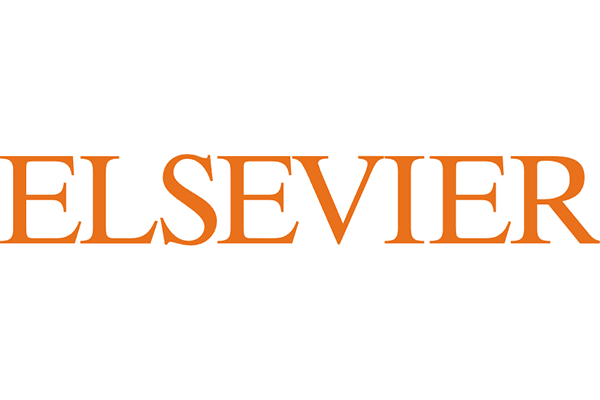


Book of Abstracts
We are happy to announce that we offer a book of abstracts as a publishing opportunity for all abstracts submitted and accepted. The book of abstracts contains a brief summary of each paper presented at the conference and will be made available online to all conference attendees. The book of abstracts is published online on the conference website.
We are happy to announce that we offer a book of abstracts as a publishing opportunity for all abstracts submitted and accepted. The book of abstracts contains a brief summary of each paper presented at the conference and will be made available online to all conference attendees. The book of abstracts is published online on the conference website.
Publishing Opportunities
The conference provides numerous publishing opportunities for participants and invited speakers.
Edited Volumes
A number of edited volumes that focus on our conference topics will be published after the conference in cooperation with Springer Nature and Routledge. The edited volumes provide an opportunity for participants to publish their research as book chapters, and they can be a great way to showcase the latest research and trends in the field. After publication, edited volumes are covered by Scopus, Web of Science, Google Scholar, and others.
A number of edited volumes that focus on our conference topics will be published after the conference in cooperation with Springer Nature and Routledge. The edited volumes provide an opportunity for participants to publish their research as book chapters, and they can be a great way to showcase the latest research and trends in the field. After publication, edited volumes are covered by Scopus, Web of Science, Google Scholar, and others.
Journal Publication
In addition to the above publishing opportunities, the best papers presented at the conference will be submitted for high-impact academic journals published by Springer Nature, Wiley, and Elsevier. Reviewers and editors of the conference will conduct a quality peer-review process and provide highly valuable recommendations. This type of publication is available by invitation only.
In addition to the above publishing opportunities, the best papers presented at the conference will be submitted for high-impact academic journals published by Springer Nature, Wiley, and Elsevier. Reviewers and editors of the conference will conduct a quality peer-review process and provide highly valuable recommendations. This type of publication is available by invitation only.
Conference Proceedings
All accepted papers presented at the conference will be included in the conference proceedings, which will be published by the Association for Computing Machinery (ACM) and Springer Nature and made available to the participants. Conference proceedings are covered by Scopus, Web of Science, Google Scholar, and others.
All accepted papers presented at the conference will be included in the conference proceedings, which will be published by the Association for Computing Machinery (ACM) and Springer Nature and made available to the participants. Conference proceedings are covered by Scopus, Web of Science, Google Scholar, and others.


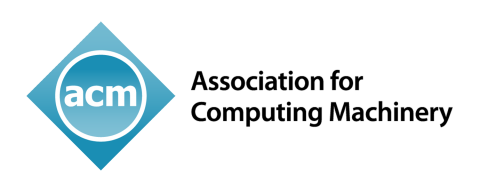

Conference Speakers
The conference features a vibrant list of confirmed speakers who are deeply versed in their field and represent different research areas. The participants of the conference will be able to get acquainted with recognized experts and gain a deeper understanding of the topics discussed.
Dr. Qammer Hussain Abbasi

James Watt School of Engineering, University of Glasgow, Glasgow, United Kingdom.
Theme:
Next Generation of Wireless Communication is Here: How It Will Look Like
Next Generation of Wireless Communication is Here: How It Will Look Like
Dr. Qammer H. Abbasi is a renowned scholar and researcher with a distinguished academic and professional background in the field of electronics and telecommunication engineering. Dr. Abbasi earned his Ph.D. degree in Electronic and Electrical Engineering from Queen Mary University of London (QMUL) in January 2012. During his early career, he served as a Post-Doctoral Research Assistant in the Antenna and Electromagnetics group at QMUL, UK, showcasing his expertise in this specialized area.
In the following years, Dr. Abbasi's research acumen and international recognition led him to take up significant roles globally. He served as an international young scientist under the National Science Foundation China (NSFC) and held an Assistant Professorship at the University of Engineering and Technology (UET) in Lahore, Pakistan. From August 2013 to April 2017, Dr. Abbasi's contributions to the field of electrical and computer engineering were evident during his tenure at the Center for Remote Healthcare Technology and Wireless Research Group in the Department of Electrical and Computer Engineering at Texas A&M University (TAMUQ). He began as an Assistant Research Scientist and later advanced to an Associate Research Scientist and Visiting Lecturer, leading multiple Qatar national research foundation grants.
Currently, Dr. Abbasi is a Reader at the James Watt School of Engineering, University of Glasgow, UK. His role encompasses being the deputy head for the Communication Sensing and Imaging group, Program Director for Dual PhD Degree, deputy theme lead for Quantum & Nanotechnology in the University's Advanced Research Centre, Co-Manager for RF and terahertz laboratory, and the lead for healthcare and Internet of Things use cases with the 5G Center Urban testbed. Moreover, he is also serving as the Project Manager for the EON XR Centre.
Dr. Abbasi's remarkable achievements are reflected in his extensive research output. He has a grant portfolio of £7M and has contributed to over 450 leading international technical journal papers and peer-reviewed conference papers. Additionally, he has authored 10 books, which further cement his authority in the academic community. Throughout his career, Dr. Abbasi has received numerous prestigious awards and recognitions, including the URSI Young Scientist Awards, UK exceptional talent endorsement by the Royal Academy of Engineering, and the International Young Scientist Award by NSFC China. His work has received widespread media coverage from reputable news outlets, including BBC News and various other international media houses.
Actively engaged in professional societies, Dr. Abbasi is an IEEE Senior Member and holds leadership positions within the organization. He serves as the Chair of the IEEE AP/MTT Scotland joint chapter and was the Chair of the IEEE Young Professional Affinity Group. Furthermore, he is involved in editorial responsibilities, acting as an Associate Editor for several IEEE journals and Senior Editor for Frontiers IoT and Sensors Networks section. His research is regularly published in prestigious academic journals, including Nature Communications (IF 16.6), Light: Science and Applications (IF 20.2), IEEE Transactions on Antennas and Propagation (IF 4.8), IEEE Antennas and Propagation Magazine (IF 3.1), Neural Computing and Applications (IF 5.2), IEEE Transactions on Computational Social Systems (IF 4.7), Plant Methods (IF 5.8), and many more.
In the following years, Dr. Abbasi's research acumen and international recognition led him to take up significant roles globally. He served as an international young scientist under the National Science Foundation China (NSFC) and held an Assistant Professorship at the University of Engineering and Technology (UET) in Lahore, Pakistan. From August 2013 to April 2017, Dr. Abbasi's contributions to the field of electrical and computer engineering were evident during his tenure at the Center for Remote Healthcare Technology and Wireless Research Group in the Department of Electrical and Computer Engineering at Texas A&M University (TAMUQ). He began as an Assistant Research Scientist and later advanced to an Associate Research Scientist and Visiting Lecturer, leading multiple Qatar national research foundation grants.
Currently, Dr. Abbasi is a Reader at the James Watt School of Engineering, University of Glasgow, UK. His role encompasses being the deputy head for the Communication Sensing and Imaging group, Program Director for Dual PhD Degree, deputy theme lead for Quantum & Nanotechnology in the University's Advanced Research Centre, Co-Manager for RF and terahertz laboratory, and the lead for healthcare and Internet of Things use cases with the 5G Center Urban testbed. Moreover, he is also serving as the Project Manager for the EON XR Centre.
Dr. Abbasi's remarkable achievements are reflected in his extensive research output. He has a grant portfolio of £7M and has contributed to over 450 leading international technical journal papers and peer-reviewed conference papers. Additionally, he has authored 10 books, which further cement his authority in the academic community. Throughout his career, Dr. Abbasi has received numerous prestigious awards and recognitions, including the URSI Young Scientist Awards, UK exceptional talent endorsement by the Royal Academy of Engineering, and the International Young Scientist Award by NSFC China. His work has received widespread media coverage from reputable news outlets, including BBC News and various other international media houses.
Actively engaged in professional societies, Dr. Abbasi is an IEEE Senior Member and holds leadership positions within the organization. He serves as the Chair of the IEEE AP/MTT Scotland joint chapter and was the Chair of the IEEE Young Professional Affinity Group. Furthermore, he is involved in editorial responsibilities, acting as an Associate Editor for several IEEE journals and Senior Editor for Frontiers IoT and Sensors Networks section. His research is regularly published in prestigious academic journals, including Nature Communications (IF 16.6), Light: Science and Applications (IF 20.2), IEEE Transactions on Antennas and Propagation (IF 4.8), IEEE Antennas and Propagation Magazine (IF 3.1), Neural Computing and Applications (IF 5.2), IEEE Transactions on Computational Social Systems (IF 4.7), Plant Methods (IF 5.8), and many more.
Dr. Claudio J. Tessone

Chairman of the UZH Blockchain Center, University of Zurich, Zürich, Switzerland
Theme: TBA
Dr. Claudio J. Tessone is a distinguished academic and expert in the fields of Blockchain and Distributed Ledger Technologies. He currently serves as a Professor of Blockchain and Distributed Ledger Technologies at the Informatics Department, University of Zurich. Additionally, he holds the prestigious position of co-founder and Chairman of the UZH Blockchain Center.
Dr. Tessone's academic journey began with a strong foundation in Physics, culminating in a Ph.D. from the Institut Mediterrani d’Estudis Avançats, Universitat de les Illes Balears, Spain, where he specialized in Synchronization and Collective Effects in Extended Stochastic Systems. Subsequently, he pursued his Habilitation on "Complex socio-economic systems" from the Department of Management, Technology, and Economics at the Eidgenössische Technische Hochschule (ETH) Zurich. This Habilitation explored the intriguing realm of Agent-based modeling of socio-economic systems, with a particular focus on social influence and network interactions.
Throughout his academic career, Dr. Tessone has demonstrated a keen interdisciplinary perspective in studying complex socio-economic and socio-technical systems. He is deeply interested in understanding the connection between the microscopic behavior of agents and the macroscopic, emergent properties of these complex systems. Among his early contributions, he was among the pioneering researchers to investigate blockchain-based systems and cryptocurrencies, and these subjects have remained at the core of his research ever since.
As an Assistant Professor of Network Science at the URPP Social Networks, Faculty of Business, Economics, and Informatics, Universität Zürich, and later as a Senior Research Associate at the Chair of Systems Design, D-MTEC, ETH Zurich, Dr. Tessone established himself as a respected figure in the academic community. His research work has been published extensively in reputable journals, covering a wide range of topics related to blockchain technology, cryptocurrency, and complex systems modeling: Physics Reports (IF 30), Scientific Reports (IF 4.9), New Journal of Physics (IF 3.3), Distributed Ledger Technologies: Research and Practice (IF 2.6), Entropy (IF 2.7), Journal of Evolutionary Economics (IF 1.8), PLOS One (IF 3.2), Applied Network Science (IF 2.2), PLOS Computational Biology (IF 4.7).
Some of his notable publications include studies on incentivizing data quality in blockchain-based systems, the centralization of Ethereum-based cryptoassets, agent-based modeling of strategic behavior in proof-of-work protocols, and the complex community structure of the Bitcoin address correspondence network. He is the director of the Summer School: Deep Dive into Blockchain and of the Certificate of Advanced Studies on Blockchain at the University of Zurich. Since 2018, he serves as Chief Editor of the section on non-financial blockchains and interdisciplinary applications of the Journal “Frontiers in Blockchain”.
Dr. Claudio J. Tessone's exceptional expertise in blockchain technology and socio-economic modeling has contributed significantly to the advancement of these fields. His ongoing research and dedication to exploring the economic incentives and design components of blockchain systems have established him as a prominent figure in the realm of distributed ledger technologies.
Dr. Tessone's academic journey began with a strong foundation in Physics, culminating in a Ph.D. from the Institut Mediterrani d’Estudis Avançats, Universitat de les Illes Balears, Spain, where he specialized in Synchronization and Collective Effects in Extended Stochastic Systems. Subsequently, he pursued his Habilitation on "Complex socio-economic systems" from the Department of Management, Technology, and Economics at the Eidgenössische Technische Hochschule (ETH) Zurich. This Habilitation explored the intriguing realm of Agent-based modeling of socio-economic systems, with a particular focus on social influence and network interactions.
Throughout his academic career, Dr. Tessone has demonstrated a keen interdisciplinary perspective in studying complex socio-economic and socio-technical systems. He is deeply interested in understanding the connection between the microscopic behavior of agents and the macroscopic, emergent properties of these complex systems. Among his early contributions, he was among the pioneering researchers to investigate blockchain-based systems and cryptocurrencies, and these subjects have remained at the core of his research ever since.
As an Assistant Professor of Network Science at the URPP Social Networks, Faculty of Business, Economics, and Informatics, Universität Zürich, and later as a Senior Research Associate at the Chair of Systems Design, D-MTEC, ETH Zurich, Dr. Tessone established himself as a respected figure in the academic community. His research work has been published extensively in reputable journals, covering a wide range of topics related to blockchain technology, cryptocurrency, and complex systems modeling: Physics Reports (IF 30), Scientific Reports (IF 4.9), New Journal of Physics (IF 3.3), Distributed Ledger Technologies: Research and Practice (IF 2.6), Entropy (IF 2.7), Journal of Evolutionary Economics (IF 1.8), PLOS One (IF 3.2), Applied Network Science (IF 2.2), PLOS Computational Biology (IF 4.7).
Some of his notable publications include studies on incentivizing data quality in blockchain-based systems, the centralization of Ethereum-based cryptoassets, agent-based modeling of strategic behavior in proof-of-work protocols, and the complex community structure of the Bitcoin address correspondence network. He is the director of the Summer School: Deep Dive into Blockchain and of the Certificate of Advanced Studies on Blockchain at the University of Zurich. Since 2018, he serves as Chief Editor of the section on non-financial blockchains and interdisciplinary applications of the Journal “Frontiers in Blockchain”.
Dr. Claudio J. Tessone's exceptional expertise in blockchain technology and socio-economic modeling has contributed significantly to the advancement of these fields. His ongoing research and dedication to exploring the economic incentives and design components of blockchain systems have established him as a prominent figure in the realm of distributed ledger technologies.
Dr. Nithesh Naik

Department of Mechanical and Industrial Engineering, Manipal Institute of Technology, Manipal Academy of Higher Education, Manipal, Karnataka, India.
Theme: TBA
Dr. Nithesh Naik is an accomplished scholar and Assistant Professor (Senior Scale) in the Department of Mechanical & Industrial Engineering at Manipal Institute of Technology (MIT) in India. He holds a Bachelor's degree in Engineering (BE) and a Master's degree (MTech), showcasing his strong educational background and expertise in the field. Currently, Dr. Naik is actively engaged in various academic roles and responsibilities at MIT. Beyond academia, Dr. Naik is also a co-founder and Chief Technology Officer (CTO) at Curiouz TechLab Private Limited, a venture based at Manipal Advanced Research Center in the GoK Bioincubator. This involvement in a startup demonstrates his entrepreneurial spirit and his dedication to applying research and innovation in practical settings.
Dr. Naik's diverse areas of interest, expertise, and research exemplify his multi-faceted approach to engineering, information technology, and its applications. In terms of expertise, Dr. Naik excels in several domains, including Machining of Materials, Machine Learning, Healthcare Informatics, Composite Materials, and Finite Element Analysis. His expertise in Machine Learning and Healthcare Informatics indicates his interest in cutting-edge technologies and their potential in advancing healthcare solutions. His articles appear in Journal of Materials Science: Materials in Electronics (IF 2.8), Big Data and Cognitive Computing (IF 3.7), Journal of Imaging (IF 3.7), Electronics (IF 2.7), and many other journals.
Through his academic roles, research contributions, and entrepreneurial ventures, Dr. Nithesh Naik demonstrates a comprehensive approach to engineering and an unwavering dedication to the development and application of innovative solutions across various domains. His work and contributions continue to make a significant impact in the academic and practical realms of engineering.
Dr. Naik's diverse areas of interest, expertise, and research exemplify his multi-faceted approach to engineering, information technology, and its applications. In terms of expertise, Dr. Naik excels in several domains, including Machining of Materials, Machine Learning, Healthcare Informatics, Composite Materials, and Finite Element Analysis. His expertise in Machine Learning and Healthcare Informatics indicates his interest in cutting-edge technologies and their potential in advancing healthcare solutions. His articles appear in Journal of Materials Science: Materials in Electronics (IF 2.8), Big Data and Cognitive Computing (IF 3.7), Journal of Imaging (IF 3.7), Electronics (IF 2.7), and many other journals.
Through his academic roles, research contributions, and entrepreneurial ventures, Dr. Nithesh Naik demonstrates a comprehensive approach to engineering and an unwavering dedication to the development and application of innovative solutions across various domains. His work and contributions continue to make a significant impact in the academic and practical realms of engineering.
Dr. Feng Liu

School of Computer Science and Technology, East China Normal University, Shanghai, China.
Theme: TBA
Dr. Feng Liu is a distinguished scholar and academic with a diverse research background in the fields of Computational Affection, Disorder Affective Recognition, and Blockchain Technology. He currently holds multiple prestigious positions, including being a Ph.D. graduate of East China Normal University, a Distinguished Professor at Shanghai University of International Business, the Director of Blockchain Technology and Application Research Center of the Institute of Artificial Intelligence and Transformation Management, an Engineer, and an Adjunct Professor of Enterprise at Binjiang College of Nanjing University of Information Technology. Furthermore, he is a Senior Member of the Chinese Computer Federation and a Member of the Blockchain Professional Committee of the CAA.
Dr. Liu's research interests and expertise are well-reflected in his extensive list of publications. He has made significant contributions to the areas of blockchain technology, computational affection, and emotion recognition. In particular, his research regularly appears in prestigious academic joournals, including Scientific Reports (IF 4.9), Computer Animation and Virtual Worlds (IF 1), Applied Sciences (IF 2.7), Entropy (IF 2.7), and many more.
Dr. Feng Liu's comprehensive research contributions demonstrate his proficiency in harnessing emerging technologies like blockchain and AI to address real-world challenges, particularly in the domains of privacy, emotion recognition, and data analysis. As a prominent figure in his field, he continues to advance the frontiers of research and contribute to the development of innovative solutions.
Dr. Liu's research interests and expertise are well-reflected in his extensive list of publications. He has made significant contributions to the areas of blockchain technology, computational affection, and emotion recognition. In particular, his research regularly appears in prestigious academic joournals, including Scientific Reports (IF 4.9), Computer Animation and Virtual Worlds (IF 1), Applied Sciences (IF 2.7), Entropy (IF 2.7), and many more.
Dr. Feng Liu's comprehensive research contributions demonstrate his proficiency in harnessing emerging technologies like blockchain and AI to address real-world challenges, particularly in the domains of privacy, emotion recognition, and data analysis. As a prominent figure in his field, he continues to advance the frontiers of research and contribute to the development of innovative solutions.
Registration, Participation, & Submission
The conference offers various registration and participation options to accommodate both in-person and virtual experiences for attendees.
1. Register for conference participation with an abstract of your paper
- To register for the conference, participants are required to submit brief abstracts of up to 800 words. This can be done by registering with the AST Consortium platform. Abstracts will be reviewed and accepted on a rolling basis, and the Conference Committee will ensure that the submission topic aligns with the conference's scope.
- The abstracts must meet the formatting requirements specified in the template. Each abstract must correspond to the scope of the conference and reflect results of independent research. All abstracts must be original; all the files submitted by the authors will be checked for plagiarism. The maximum number of authors in one abstract is six.
- Once an abstract is accepted, it is mandatory that at least one of the authors present either in-person or virtually (oral session presentation or with a poster). Authors can submit multiple abstracts for review, but if more than one is accepted, each additional abstract will require an extra fee. There are no limitations on the number of abstracts being submitted by the author. However, we highly recommend to submit no more than three abstracts from one author.
- In addition, we highly recommend submitting abstracts as early as possible, as this will give the Committee ample time to review and provide feedback. There are different registration deadlines (early bird, registration, and late) with a changing amount of registration fee.
- By submitting an abstract, authors have the opportunity to present their research to a global audience, engage with peers, and receive valuable feedback. It is an excellent opportunity to showcase their work and contribute to the advancement of their field. All accepted abstracts will appear in the Conference Book of Abstracts. Once an abstract is accepted, the authors are invited to submit a full paper for publication in the conference proceedings or edited volumes by the deadline.

Participation in conferences can take various forms, including both online and in-person options. One should choose an appropriate form of participation when registering.
2. Choose the form of participation: in-person or virtual
In-person forms of participation:
In-person with a session (oral) presentation: If you're able to attend a conference in person, presenting your research in a session presentation is an excellent way to share your work with others. You'll have the opportunity to engage with the audience and answer questions about your research. Your full paper is published in the conference proceedings, edited volumes, or partner journals, with coverage by leading databases (Scopus, Web of Science, and others).
In-person with a poster presentation: Like online poster presentations, in-person poster presentations allow you to display your research in a visual format. You'll have the opportunity to discuss your research with attendees and answer questions. Posters will be also available on the website. Your full paper is published in the conference proceedings, edited volumes, or partner journals, with coverage by leading databases (Scopus, Web of Science, and others).
In-person as a listener, no presentation & no publication: If you're attending a conference in person but don't have any research to present, you can still participate as a listener. You'll be able to attend sessions, listen to presentations, and engage with other attendees, but you won't have a presentation or publication.
Virtual forms of participation:
Online with a session presentation: If you are unable to attend the conference in person but are scheduled to present, a session presentation online is an excellent option. This type of presentation allows you to share your research with others and answer questions from the audience, despite not being present physically. As an online presenter, you can have your paper published in the conference proceedings, edited volumes, or partner journals, with coverage by leading databases (Scopus, Web of Science, and others). The options available include prerecorded presentations, which will be published on the conference website and available to all participants, or live online presentations with a short Q&A session.
Online with a poster presentation: Another way to present your research online is through a poster presentation. This option allows you to display your research in a visual format, making it easier for others to understand and engage with. Posters are published online on the conference website. You may publish the full paper in the conference proceedings, edited volumes, or partner journals, with coverage by leading databases (Scopus, Web of Science, and others).
Online as a listener, no presentation & no publication: If you're interested in attending a conference but don't have any research to present, you can still participate as a listener. You'll be able to attend sessions, listen to presentations, and engage with other attendees, but you won't have a presentation or publication.
To ensure that participants from all over the world have wider access to the conference, there are three additional fully online participation options available. When registering for the conference, participants can choose the most appropriate form of participation based on their preferences and circumstances.
3. Take part in the conference

Conference Venue

The conference will take place at the Samarkand State University, Samarkand, Uzbekistan.
University address: 15 Universitetskatyta ulitsa, Samarkand, Uzkekistan.
- The Samarkand State University is a prestigious institution that embodies academic excellence and fosters a vibrant environment for learning and research. As one of the oldest universities in Central Asia, Samarkand State University boasts a rich history dating back to 1927. Over the years, it has evolved into a renowned center of education, attracting students and researchers from around the globe. The university offers a wide range of undergraduate and graduate programs across various disciplines. With a dedicated faculty comprising accomplished professors, scholars, and experts in their respective fields, students receive a high-quality education that prepares them for successful careers.
- For those inclined towards research, Samarkand State University provides an ideal environment to explore innovative ideas and contribute to the advancement of knowledge. The university houses state-of-the-art research facilities and laboratories, fostering an atmosphere of intellectual curiosity and discovery. Whether you are interested in scientific breakthroughs, social studies, cultural preservation, or technological advancements, the university encourages and supports your research endeavors. Furthermore, Samarkand State University actively promotes international collaboration and partnerships, allowing researchers to engage in cross-cultural exchanges and collaborate with scholars from different parts of the world. This global outlook provides a unique opportunity to broaden perspectives and cultivate a deeper understanding of diverse academic disciplines.
- Beyond academics and research, Samarkand itself offers a captivating backdrop for your educational journey. Known as a historical and cultural treasure, the city of Samarkand enchants visitors with its architectural marvels, UNESCO World Heritage sites, and a rich tapestry of traditions. Exploring the city and immersing yourself in its vibrant culture will undoubtedly enrich your experience at the university.
University address: 15 Universitetskatyta ulitsa, Samarkand, Uzkekistan.
Welcome to Samarkand, a city that whispers tales of ancient empires and mesmerizes travelers with its architectural wonders. Situated in Uzbekistan, this jewel of the Silk Road invites you to step back in time and immerse yourself in a rich tapestry of history and culture.
- Samarkand has been a crossroads of civilizations for over 2,500 years, and its significance as a trading hub along the Silk Road has left an indelible mark on its character. As you wander through its labyrinthine streets, you'll encounter a harmonious blend of Persian, Islamic, and Central Asian influences.
- One of the city's most iconic landmarks is the Registan Square, a breathtaking ensemble of grand madrasahs adorned with intricate tile work and majestic arches. The Registan, with its imposing presence, evokes the grandeur of Timurid architecture and serves as a reminder of the city's glorious past.
- Another must-visit site is the Bibi-Khanym Mosque, a monumental structure that was once one of the largest mosques in the Islamic world. Its towering turquoise dome and stunning façade are testaments to the city's architectural prowess.
- For a glimpse into the city's spiritual heritage, explore the Shah-i-Zinda necropolis, a sacred complex of mausoleums where you can witness stunning tile work and intricate geometric designs. The mausoleum of Amir Timur, the legendary Central Asian conqueror, is also found here, adding a sense of reverence and historical significance.
- No visit to Samarkand would be complete without a trip to the enchanting Gur-e-Amir mausoleum, the final resting place of Timur himself. The ornate interior, adorned with gold and precious gems, is a sight to behold and a testament to the opulence of the Timurid dynasty.
- Beyond its architectural treasures, Samarkand offers a vibrant bazaar experience in the Siyob market. Lose yourself in the colorful stalls, where you can find traditional handicrafts, spices, and local delicacies. Don't miss the opportunity to savor the flavors of Uzbek cuisine, with its hearty pilaf, succulent kebabs, and delicate pastries.
- As you explore Samarkand, you'll discover a city that seamlessly blends its ancient past with modern life. While its historical sites are undoubtedly captivating, the warmth and hospitality of its people will leave a lasting impression on your journey.
There are numerous hotels you can stay in the wonderful city of Samarkand. Kindly use the Booking.com or contact the organizers via the contact details below if you need assistance.
Traveling to Samarkand, Uzbekistan, is an exciting adventure that unveils the historical treasures of the Silk Road. Whether you're coming from afar or exploring neighboring regions, here's a handy guide to help you reach Samarkand by air, train, or car:
By Air
By Train
By Car
Visa to Uzbekistan
By Air
- Samarkand has its own international airport, the Samarkand International Airport (SKD). Several airlines offer flights to and from major cities in Central Asia and beyond. There are numerous connecting flights to Samarkand (SKD) via Instanbul (Turkey), Dubai and Abu Dhabi (UAE), Tashkent (Uzbekistan), or Moscow and St. Petersburg (Russia).
- You may also find it convenient to fly to Tashkent International Airport (TAS), which is the largest airport in Uzbekistan, and then take a domestic flight to Samarkand (or one could take a train instead). The flight duration from Tashkent to Samarkand is around 45 minutes. The TAS airport receives flights from numerous destinations. See the "Visa, Travel, & Accomodation" Guide for details.
By Train
- Samarkand is well-connected to major cities within Uzbekistan and neighboring countries by train. The city has a central train station, Samarkand Railway Station, which is easily accessible. From Tashkent, the capital of Uzbekistan, you can take a high-speed train to Samarkand. The journey takes around two to three hours, depending on the train type. Trains from other cities within Uzbekistan, such as Bukhara and Khiva, also offer convenient connections to Samarkand.
By Car
- If you prefer a road trip or have the flexibility to explore at your own pace, traveling to Samarkand by car can be an option. The road network in Uzbekistan has improved in recent years, making it more accessible for travelers. From Tashkent, the capital, you can take the M-39 highway, which connects the two cities and offers a scenic drive. It takes approximately four to five hours, depending on traffic and road conditions. It's advisable to familiarize yourself with local traffic regulations and have the necessary documentation for crossing borders if you're entering Uzbekistan from a neighboring country.
Visa to Uzbekistan
- Uzbekistan is an open and friendly country. Citizens from many countries (EU, Canada, Turkey, CIS, South Korea, Japan, and others) do not require a visa to enter Uzbekistan. All the others may apply for an electronic visa, without the need to visit an embassy or consulate. Please check VISA requirements here.
The City of Samarkand
Accommodation
Getting There

4. Provide a full paper for publication
- After submitting, reviewing, and registering your abstract for the conference, the authors are expected to submit an original piece of research that is not currently under consideration elsewhere. The full-length papers must adhere to the formatting requirements provided in the 'Full paper template.' Full-length paper submissions are accepted on a rolling basis, immediately following the acceptance of the paper abstract and completion of conference registration. One registered abstract implies submitting one full-length paper for publication either in the conference proceedings, edited book volumes, or academic journals.
- To ensure the originality of the papers, all incoming full papers will be checked for plagiarism. Additionally, all paper submissions will be peer-reviewed by at least two independent scholars. This process guarantees that the papers accepted for publication at the conference are of the highest quality. The proceedings editors will assist in finalizing papers for publication.
- Authors will have an opportunity to submit a revised full paper after the conference, based on the feedback received during the discussions and interactions with other participants. This is an excellent opportunity to refine and improve the research work further, as well as to present their research to a global audience.
- After conducting a peer review, the editors assign the type of publication based on the quality of the submission: conference proceedings ("Conference Paper"), edited volumes ("Book Chapter"), or academic journal ("Article"). Full papers are published within 4-12 month after being submitted to the publisher (depending on the type of publication). All published papers are sent for coverage by the leading databases (Scopus, Web of Science, and others).
Authors' guidelines


Dates & Deadlines
Registration deadlines
Full paper submission deadline
Conference dates
Publication
- Early registration: May 20, 2023.
- Standard registration: August 20, 2023.
- Late registration: October 1, 2023.
- Arrivals: October 19, 2023.
- Day 1: October 20, 2023.
- Day 2: October 21, 2023.
- Cultural program, local visits: October 22-23, 2023.
- Departures: October 23, 2023.
- On the rolling basis, but no later than November 10, 2023.
- Participants are encouraged to submit full papers as early as possible after having their abstracts accepted and registration confirmed.
- Book of Abstracts: October 10, 2023.
- Final conference program: October 15, 2023.
- Conference proceedings: approx. 4 month after submission to the publisher.
- Edited volumes: approx. 6 month after submission to the publisher.
- Journal issues: on the rolling basis.
Registration Fees
- Early registration (on or before May 20, 2023): US$100.
- Standard registration (on or before August 20, 2023): US$200.
- Late registration (on or before October 5, 2023): US$300.
- Early registration (on or before May 20, 2023): US$100.
- Standard registration (on or before August 20, 2023): US$150.
- Late registration (on or before October 5, 2023): US$250.
- Text translation.
- Paper proofreading.
- Paper editing.
- Gala Dinner & Live Music at Samarkand Silk Road Center (Day 2 Evening): US$50.
- Two-day trip to the ancient city of Bukhara, Uzbekistan (Day 3-4, incl. travel, accommodation 4*, full board): US$250 per person.
What's included:
- Access to all conference and poster sessions.
- Presentation of one paper at a conference or poster session.
- Program booklet, Book of Abstracts, proceedings copy (PDF).
- Coffee breaks, lunches, dinners, and refreshments for the entire conference.
- Samarkand City Excursion (Day 3): The Ancient City at the Heart of Asia.
- One paper publication in the proceedings / edited volumes / academic journals (covered by Scopus, Web of Science). At least one paper author must present in-person.
- Certificate of participation.
What's included:
- Virtual access to conference and poster sessions.
- Program booklet & Book of Abstracts (PDF).
- One paper publication in the proceedings / edited volumes / academic journals (covered by Scopus, Web of Science). At least one paper author must present virtually.
- Proceedings copy (PDF).
- Certificate of participation.
- Conference videos and other materials.

Translation & editing services
Virtual participation
Additional opportunities for in-person participants
In-person participation
Sponsorship Opportunities
The conference attracts numerous participants from all over the world, both industrial and academic delegates, to discuss the latest advances in agriculture, biotechnology, and food science.
This year conference will be attended by 300 in-person participants from 20+ countries, in addition to more than 1,000 virtual participants from 40+ countries, representing all major areas in computer science, information technology, and applications.
To request a sponsorship kit, kindly contact us:
This year conference will be attended by 300 in-person participants from 20+ countries, in addition to more than 1,000 virtual participants from 40+ countries, representing all major areas in computer science, information technology, and applications.
To request a sponsorship kit, kindly contact us:
Resources for Authors & Participants

Conference flyer





This section provides authors and participants with essential information regarding a manuscript preparation, terms of participation, travel conditions and much more.
Frequently Asked Questions
Registration is available on the conference website in the Registration section. Follow the instructions provided on the registration page to complete the registration process.
The deadline for submissions varies depending on the type of submission and registration date. Please refer to the conference website for detailed information on submission deadlines.
The registration fee varies depending on the type of participation and registration date. Please refer to the conference website for detailed information on registration fees.
You will receive an email notification regarding the status of your submission after the review process is complete. Please note that all submissions are reviewed on a rolling basis.
At least one author of the accepted abstract must attend the meeting to present your work and answer questions (either in-person or virtually). Only talks and posters of registered participants will be scheduled in the program. If it is difficult to attend virtually due to the difference in time zones authors may submit a recorded video presentation for the live stream although live participation is encouraged to facilitate Q&A.
The conference organizers will inform you if your presentation will be recorded. If it is being recorded, it will be available for viewing on the conference website after the conference.
Yes, there will be opportunities for networking during the conference. Please refer to the conference program for scheduled networking events.
Yes, conference proceedings will be published. Please refer to the conference website for detailed information on the publication opportunities and process.
You need to participate in-person or virtually with a full paper publication (in conference proceedings, edited volumes, or partner journals). All accepted papers will be published by the leading world publishers and submitted for coverage by the leading databases, including Scopus and Web of Science).
Yes, kindly contact the Secretariat via email <events@astconsortium.org> (or use the contact form on this website) with full details about your application so we can transfer you and you colleagues.
To participate in a poster presentation at the conference, you can register for the conference with a poster submission. The poster requirements and guidelines are available in the "Resources for Authors and Participants" section of the conference website. Once your poster submission is accepted, you will be invited to present your poster at the poster session during the conference. The posters can be displayed at the conference venue, virtually, or both, depending on the type of participation you choose. Make sure to follow the format requirements and prepare a visually engaging and informative poster that effectively presents your research.
Email: events@astconsortium.org

Contact Us
Kindly let us know if you have any questions about the conference, participation, or publication.


Cookies managing
Cookie Settings
Cookies necessary for the correct operation of the site are always enabled.
Other cookies are configurable.
Other cookies are configurable.

